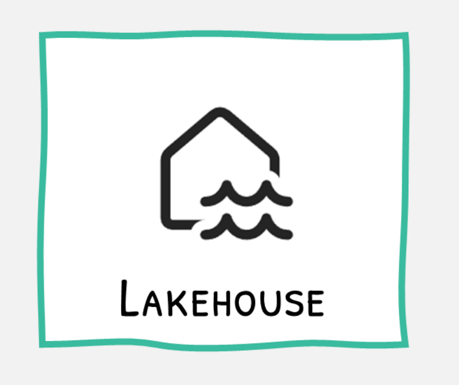Mircrosoft Fabric - Lakehouse
Discover everything you need to know about Microsoft Fabric Lakehouse! Learn what it is, why it matters, and how easily you can create your own Lakehouse for efficient data management. Perfect for beginners and professionals alike. Simplify your data journey today.
MICROSOFT FABRIC
Bikramjeet Ladania, Fabric Community Member
5/17/20242 min read


In the world of data management and analytics, Microsoft Fabric Lakehouse is becoming quite popular. But what exactly is it, and how can you use it effectively? Let's simplify everything you need to know.
What is Microsoft Fabric Lakehouse?
Microsoft Fabric Lakehouse is a combination of data lakes and data warehouses. A data lake stores raw data in its original form, while a data warehouse organizes and manages data so you can easily analyze it. Microsoft Fabric Lakehouse blends these two technologies together. It allows you to store, manage, and analyze your data all in one place, making your work easier and faster.
Why is it important?
Simplifies data management
Provides quick access to both raw and processed data
Improves collaboration between teams
Common Questions
Q: Can I store any type of data in Microsoft Fabric Lakehouse?
A: Yes, you can store structured data (like tables), semi-structured data (like JSON), and even unstructured data (like images and videos).
Q: Do I need advanced technical knowledge to use Fabric Lakehouse?
A: Not necessarily. Basic knowledge of data management helps, but Microsoft Fabric has user-friendly tools that make the process easier for beginners.
Q: Can I share my Lakehouse with team members?
A: Yes, you can easily manage access and permissions within your workspace settings.
Q: How much does it cost to use Microsoft Fabric Lakehouse?
A: Pricing depends on your data storage size and how much processing power you need. Microsoft offers clear pricing plans suitable for small businesses to large enterprises.
How to Create a Microsoft Fabric Lakehouse?
Creating your own Fabric Lakehouse is straightforward. Follow these simple steps:
Step 1: Sign in to Microsoft Fabric Account
First, you need a Microsoft Fabric account
Sign in to your account on the Microsoft Fabric portal
Step 2: Create a Workspace
Once logged in, click on New Workspace
Give your workspace a name and select Create
Step 3: Set Up Your Lakehouse
Inside workspace, click New and select Lakehouse
Enter a name for your Lakehouse and click Create
Step 4: Upload Data
Once your Lakehouse is created, click on 'Upload Data'
Choose the files you want to store and upload them directly
Step 5: Start Analyzing Data
After uploading, your data is ready for analysis
You can now query your data using familiar tools like SQL
Microsoft Documentation: https://learn.microsoft.com/en-us/fabric/data-engineering/lakehouse-overview
